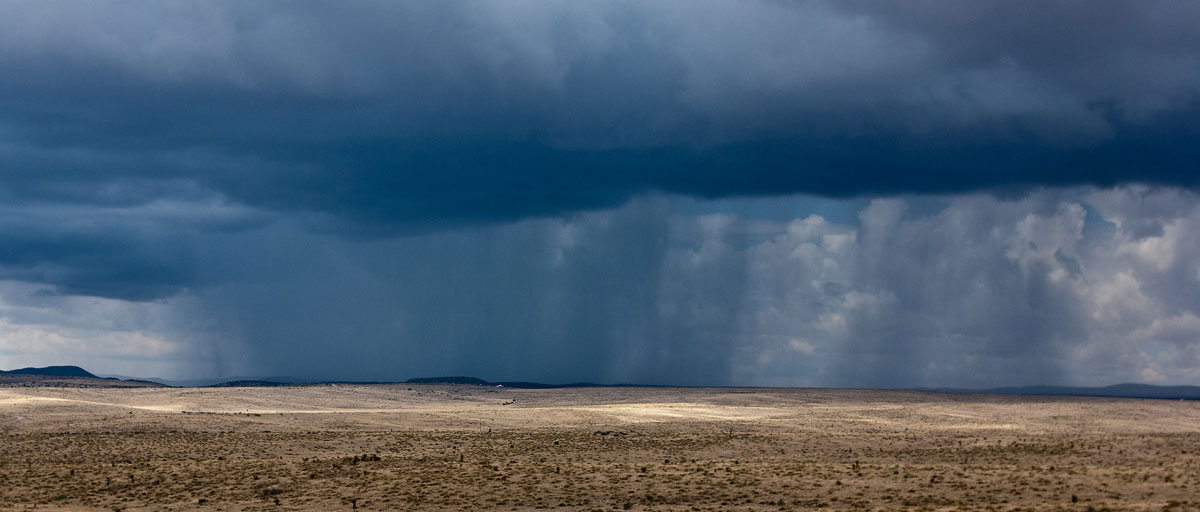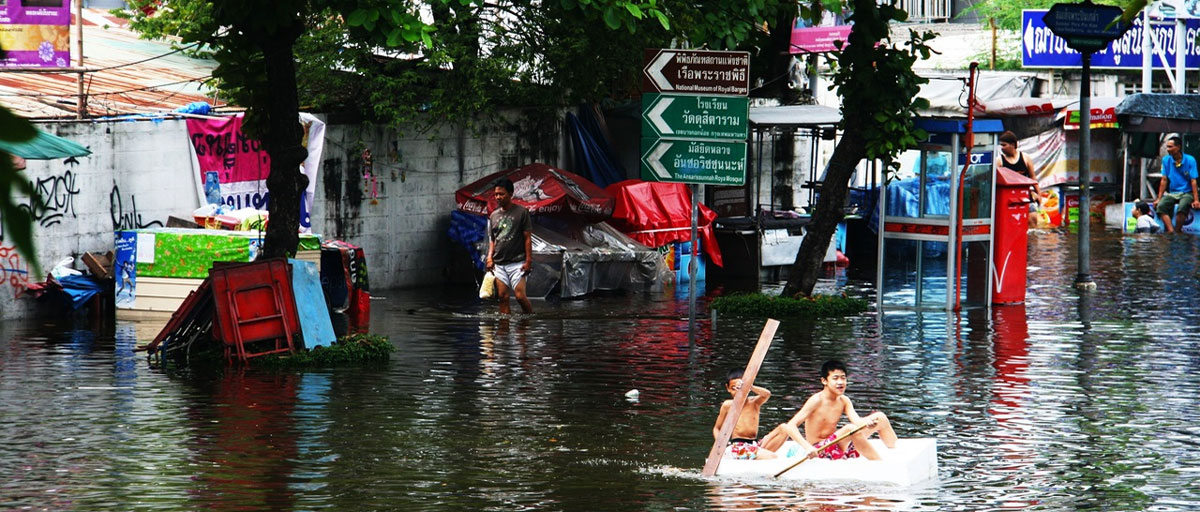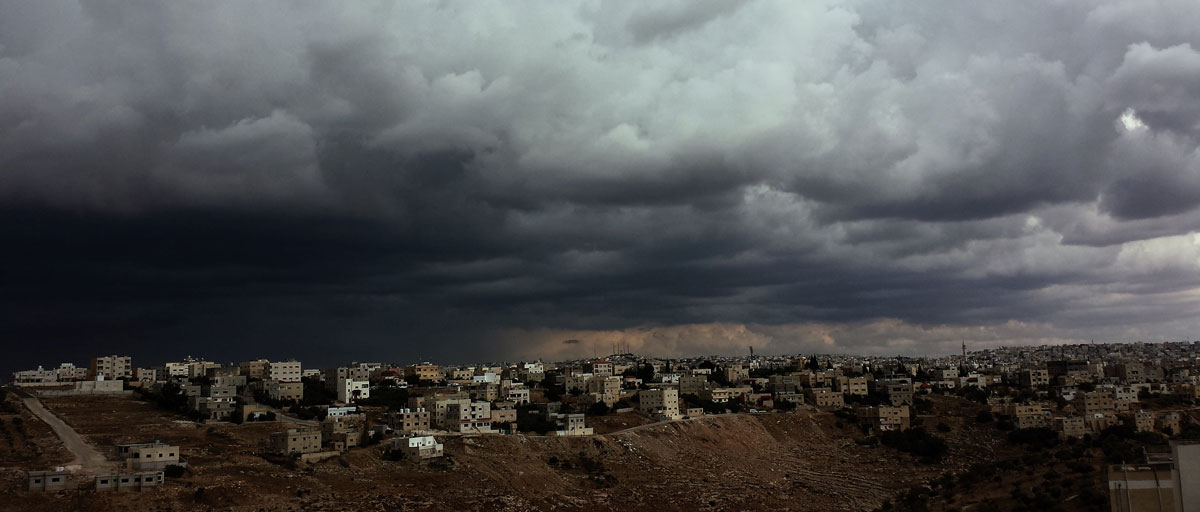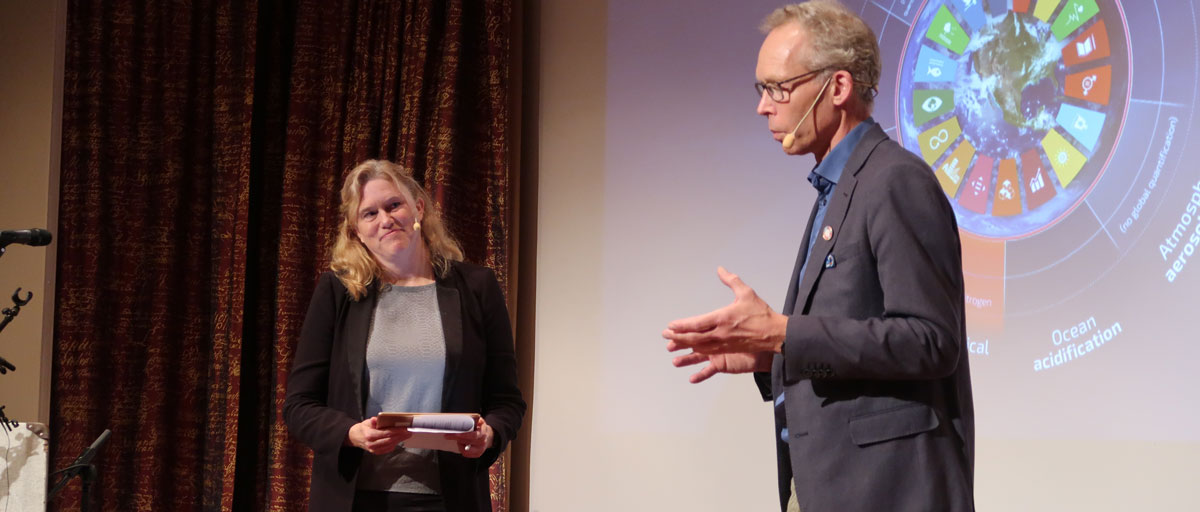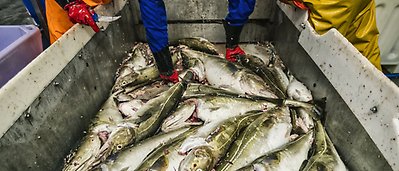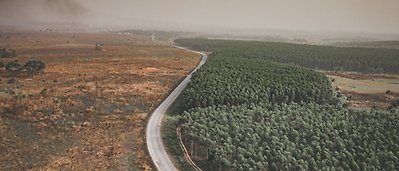Bildtext får vara max två rader text. Hela texten ska högerjusteras om den bara ska innehålla fotobyline! Photo: B. Christensen/Azote
WATER SUSTAINABILITY
Saving the planet’s bloodstream
- Humans change landscapes and ecosystems to the point that water may go from being a friend to becoming a foe
- Existing methods and frameworks fail to grasp the planetary consequences of human interferences on the water cycle
- The Planetary Boundaries framework can represent a suitable framework to elaborate on
Researchers urge hydrology and water community to join the “Grand Challenge” in establishing safe limits to human interference with the global water cycle
"WE HAVE LOTS OF WORK TO DO": Water is at the center of the planetary drama currently unfolding before our very eyes. Water not only supports ecosystem services like food and energy, it is also a critical regulator of temperature and climate on Earth.
As it flows through rivers and streams, rests in lakes and oceans, and falls as rain, water serves as the bloodstream of the biosphere. Any changes to water’s stabilizing capacity could push societies to the brink of collapse.
Despite this, humans continue to change landscapes and ecosystems to the point that water may go from being a friend to becoming a foe.
Why?
Part of the problem is that there are no global water management organizations, and consequences of human actions are not always felt at a regional level. Deforestation in one area of the world may trigger increased floods or droughts in another faraway region.
Failing to grasp the planetary consequences
Water resources management concepts and frameworks are typically designed for the local to regional scale. In three studies recently published in Water Resources Research, One Earth, and Earth’s Future, centre researcher Lan Wang-Erlandsson with colleagues argue that such existing methods and frameworks fail to grasp the planetary consequences of human interferences on the water cycle.
In their studies, Wang-Erlandsson and her colleagues illuminate the role of the water cycle for maintaining fundamental Earth system functioning, and present a roadmap for detecting, monitoring, and establishing safe global limits to water cycle modifications, and present an approach to include planetary stability in local water resource governance and management.
It is startling that we do not know at what point human modifications of the water cycle may cause major disruptions of the Earth System.
Lan Wang-Erlandsson, co-author
Towards a revised water planetary boundary
The authors believe a robust, holistic, and locally applicable framework for Earth system water governance is needed to complement existing local-regional scale water governance.
The Planetary Boundaries framework, which sets quantified boundaries to human perturbation of key Earth processes including freshwater use, is considered the most suitable framework to depart from.
This means reframing the “freshwater use planetary boundary” to a “water planetary boundary” which accounts for the importance of all five major water stores: atmospheric water, soil moisture, surface water, groundwater, and frozen water. This highlights four fundamental Earth system functions of the global water cycle: hydroclimatic, hydroecological, transport, and storage. The use of sub-boundaries could further make the water planetary boundary more measurable as well as understandable to both hydrologists and a broader public.
To succeed, Wang-Erlandsson and her colleagues urge the hydrology and water resource community to join a “Grand Challenge” in order to develop the suggested water planetary sub-boundaries.
“We are excited by our proposed new water planetary boundaries and how to quantify them over the coming years – we have lots of work to do," says lead author Tom Gleeson from University of Victoria.
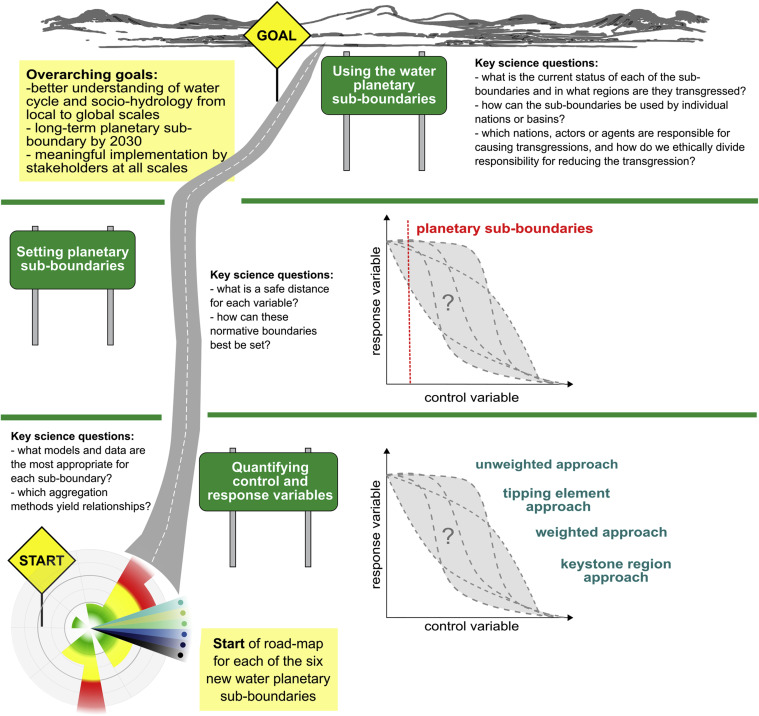
A Road Map for Developing the New Water Planetary Sub-boundaries. Click on illustration to acess scientific study
Methodology
The papers are based on multiple workshops, working groups, and intense collaboration and debate. Using a series of concepts including dynamic systems, resilience theory, Earth System science and the planetary boundaries framework, and building on previous attempts in the systems and resilience literature, the authors identify key components of Earth System resilience and synthesize evidence regarding regional disruptions to water functions.
Reframing of the water planetary boundary framework is suggested based on a qualitative evaluation composed of seven criteria for defining a useful water planetary boundary. It expands on the set of criteria originally used for identifying useful control variables for planetary boundaries, with additional requirement related to the capability of that variable to act as a robust indicator of process change, among others. The authors further note that this analysis could be used to evaluate other planetary boundaries, especially those with no clear global tipping points and whose critical transitions start at the regional or local scales, such as land use or biodiversity loss.
Link to publications:
Gleeson, T., Wang-Erlandsson, Miina Porkka, Zipper, S.C., Jaramillo, F., Gerten, D., et.al. 2020. Illuminating water cycle modifications and Earth System resilience in the Anthropocene. Water Resources Research. DOI: https://doi.org/10.1029/2019WR024957
Gleeson, T., Wang-Erlandsson, L., Zipper, S.C, et.al. 2020. The Water Planetary Boundary: Interrogation and Revision. One Earth, Perspective, Vol. 2, Issue 3, pp223-234. DOI:https://doi.org/10.1016/j.oneear.2020.02.009
Zipper, S., Jaramillo, F., Wang-Erlandsson, L., Cornell, S., Gleeson, T., Porkka, M., Häyhä, T., Crépin, A-S, Fetzer, I., Gerten, D., Hoff, H., Matthews N., Ricaurte-Villota, C., Kummu M., Wada Y., Gordon, L. 2020. “Integrating the water planetary boundary with water management from local to global scales” Earth’s Future
For more information about the publications, please contact Lan Wang-Erlandsson:
